The Independent's journalism is supported by our readers. When you purchase through links on our site, we may earn commission. Why trust us?
The best supplements to take, according to experts
These are the expert-approved products to know for gut health, improved energy, joint care and more

Most experts agree that you don’t have to take supplements in order to maintain good health. However, adding supplements and multivitamins to your daily routine can be a game changer if you’re struggling with a limited diet, nutrient deficiencies or the symptoms of hormonal changes. With quality vitamins to suit all kinds of concerns, it’s worth noting that we’ve also rounded up the best supplements for specific needs, from the best menopause supplements, to the best collagen powders and the best probiotics, specifically designed to support gut health.
Finding the right supplement can be a challenge, especially with so much marketing jargon to wade through. A trusted brand is always a good place to start and brands backed by real medical experts are also more likely to be worth your money. However, a high price tag doesn’t always equal the best option, especially if you’re looking for a product that’s personal to you and your needs.
To help make sense of the selection process we asked a cohort of experts which supplements are worth taking, particularly for specific health concerns. Is there a gold standard? Which supplements do doctors and nutritionists take themselves? Which supplements should one take for gut health? Is it worth investing in vitamins for hair, skin and nails? And does greens powder actually work?
Do I need to take supplements?
While there are several confusing nutrients on the market that still lack robust research, there are a collection of faithful vitamins and minerals that doctors recommend supplementing. These include supplements like a probiotic, Vitamin D, magnesium and Omega-3. Collagen and protein powder are two of the most popular supplements available and while you don’t need to supplement either, both can help as part of a healthy lifestyle if taken in the correct doses to suit your needs.
As a general guide, NHS GP Dr Raj Arora explains that, “if you are feeling well in yourself, consuming a balanced healthy diet and not lacking in vitamins, generally you may stick with a probiotic supplement and leave it at that. However, if there is a deficiency or lack of vitamins, a multivitamin may be helpful.”
If you’re not sure what kind of probiotic or multivitamin to take, specialist menopause nutritionist Emma Bardwell advises that, “it’s always best to get advice from a registered healthcare provider”. A gut health expert or registered nutritionist will be able to tell you which type is best for you and which brands might help. This is because an expert can actually assess any deficiencies and diagnose any issues that might benefit from supplementation.
If you’ve been told by a doctor that you are deficient in iron, Vitamin D, or something else, choosing a quality supplement is the next step. From basic multivitamins and iron supplements to vitamins that boost skin, hair and nails, we’ve covered all bases with help from Bardwell, Dr Arora and registered nutritionist Jessica Shand. Read on for the supplements and vitamins to buy, according to the experts.
Why you can trust IndyBest reviews
Emilie Lavinia is The Independent's Fitness and wellbeing editor and has been reporting on health and wellness for more than a decade. She spends her days working with leading doctors and health experts, reading the latest research on supplements, skin, the menopause and more, testing products and experiences and creating easy-to-understand guides to the best products available. She asks experts the questions that need to be asked and shares her findings with IndyBest readers.
Meet the experts:
- Dr Raj Arora: An NHS GP, Dr Raj Arora believes that health education is key, and regularly shares tips and insights with a huge social media following. She studied at Barts and Royal London Medical School, and graduated with an MBBS and a BSc in Medical Education
- Emma Bardwell: Emma is a specialist menopause nutritionist. Her interest in perimenopause and menopause was inspired by her own experience and led her to write The Perimenopause Solution. She blends nutritional science, diet therapy and behaviour change to support the wellbeing of her clients.
- Jessica Shand: Jessica completed her 3-year Nutritional Therapy diploma qualification at The College of Naturopathic Nutrition (DipCNM), underwent a 12-month accredited health coaching course, and is accredited by AfN and The Royal Society of Public Health in pre and post-natal nutrition.
1Bio-Kult everyday
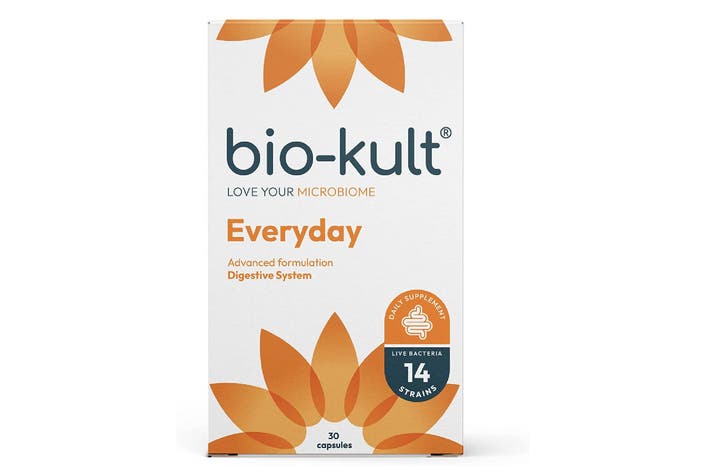
- Best For gut health
- Size 30 capsules
- How to take it Take 1-2 per day with food, if you are taking antibiotics take 4 capsules daily
- Why we love it
- Affordable
- Contains 14 strains of bacteria
- Vegetarian
- Suitable for adults and children 3+
- Take note
- Not suitable for vegans
Probiotics range in cost, efficacy and strains. They typically contain a mixture of live cultures intended to reach the gut alive and balance the microbiome. Dr Arora advises that if you’re seeking a simple, affordable probiotic, Bio-Kult’s advanced multi-strain formulation is a good place to start. It contains 14 strains of live bacteria in an easy-to-swallow pill.
“Research indicates a positive association between taking probiotics and good gut health,” Dr Arora explains. “Increasing the number of beneficial bacteria in the gut has also been linked with better immunity.”
She also often recommends a probiotic “if patients are looking for a supplement for gut health or if they have taken a course of antibiotics, as this can deplete friendly gut bacteria”.
The gut is often referred to as the second brain because it can impact mood, the immune system and hormone function so keeping it healthy is a must. If you suffer from stomach cramps, excessive gas, low mood, a weak immune system or skin issues like acne it might be worth trying a probiotic.
2Symprove daily essential
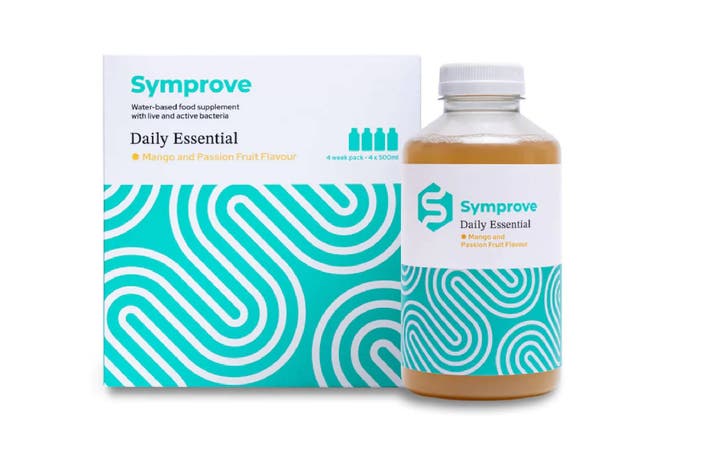
- Best Liquid formula for gut health
- Size 500ml
- How to take it Take 70ml each morning on an empty stomach
- Why we love it
- Loyalty subscription saves 20 per cent
- Tasty flavours
- Liquid formula is easy to swallow
- Reaches the gut alive
- Take note
- A more expensive option
Symprove is a water-based formula containing live gut-friendly bacteria. Though the brand doesn’t specifically refer to it as a probiotic, it has probiotic qualities that can help keep your gut microbiome happy and balanced.
“Enhanced gut health is fundamental to improving the function of all of the body’s systems, and it’s key to overall health and wellbeing,” says Shand.
There are a range of flavours to choose from, including original, strawberry and raspberry, and mango and passionfruit. The formula is designed to withstand the stomach’s acidity, meaning the live bacteria can reach the gut and it’s a great gut health supplement for anyone who struggles to swallow capsules and pills.
“Since I started taking it, Symprove has earned a permanent position in my morning routine because it’s had such a positive impact on my digestion,” Shand shares.
3Vitabiotics immunace
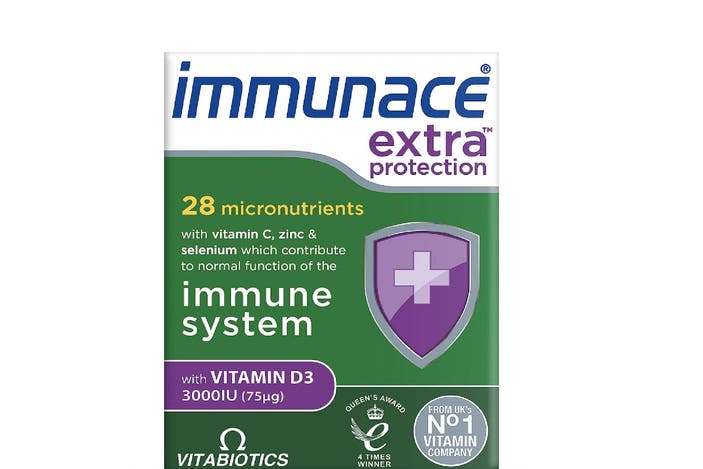
- Best For immunity
- Size 30 capsules
- How to take it Take one a day with food
- Why we love it
- Vegetarian
- Gluten free
- Affordable
- Contains 28 micronutrients
- Take note
- Not suitable for vegans
While Dr Arora explains that a supplement for gut health can help the immune system, it’s also important to look at your dietary intake of vitamins and minerals. Eating a balanced and diverse diet is essential for immune health and there are several nutrients that play a key role in your ability to fend of infections.
“A supplement containing vitamin D and vitamin C may help improve immunity, especially if there is a deficiency,” she says. She also adds that zinc is a star player here as it can also help “support the growth and function of immune cells”.
Many products claim to have immunity-boosting properties but as long as the ingredients are of a good quality and a recommended dose, a purse-friendly option will do just as much for you.
Dr Arora recommends a multivitamin tailored to the immune system and her personal pick is Vitabiotics Immunace, which contains vitamin C, zinc, selenium and vitamin D3 – another essential nutrient, particularly during the winter months.
4Sambucol black elderberry liquid
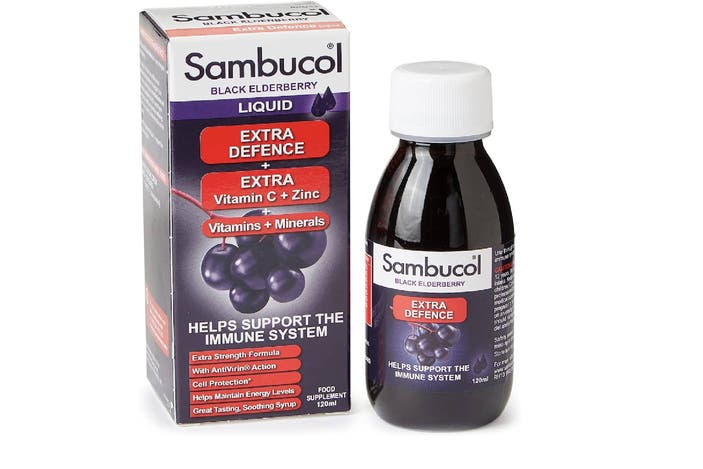
- Best Liquid formula for immunity
- Size 120ml
- How to take it 10-15ml daily, in winter take 10-15ml 4 times daily
- Why we love it
- No artificial colours
If you struggle to take tablets and swallow large capsules, there are other supplements that can help to support your immune system that can be easier to take. Dr Arora suggests taking Sambucol liquid as an alternative.
Elderberries are a powerful antioxidant and have been used in medicine for hundreds of years. This syrupy formula uses flavonoid-rich elderberries for a gluten-free supplement and packed with immune boosting components, such as vitamins C, D and B6 as well as zinc, folic acid and other minerals.
Sambucol is also available in a children’s formula and in gummy form making it easier for children to take.
5Free Soul FS greens
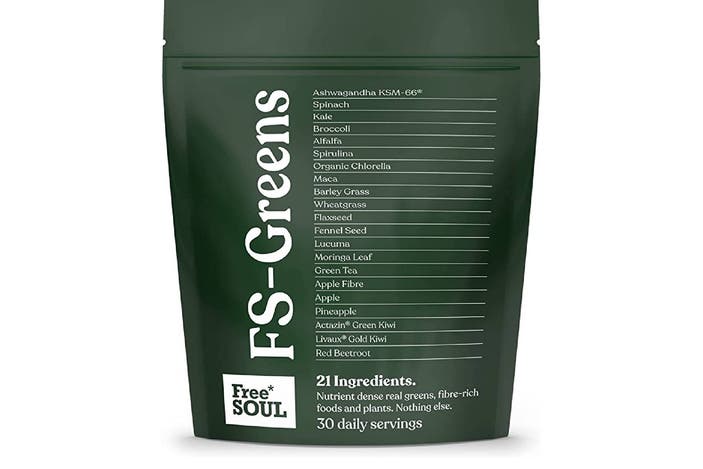
- Best Powder for immunity and energy
- Size 150g
- How to take it Add one teaspoon to 250-300ml of water or smoothie
- Why we love it
- Contains 21 superfoods
- Contains fibre
- No added sugars or sweeteners
- Save 20 per cent with subscription
This gluten-free, vegan-friendly powder is unflavoured and unsweetened and contains 21 greens ingredients, including chlorella, wheatgrass, barley grass, spinach, kale, broccoli, alfalfa, maca and ashwagandha. Interestingly, despite containing no sweeteners, it doesn’t taste bitter or have the pond scum quality that many other greens powders do.
However, if you are sensitive to taste, a greens powder can taste earthier than many other drinks. “I like to squeeze fresh lemon into my glass of Free Soul greens to take off the earthy-tasting edge and for the added nutrient benefits,” Shand says.
She explains that while you should attempt to eat as many greens as possible as part of a balanced diet, this powder can, “support immunity, energy and digestion too as an added bonus.” Think of it as an extra step in the right direction for added energy and more vital nutrients to support gut health, skin health and your immune system.
6Centrum advance multivitamin
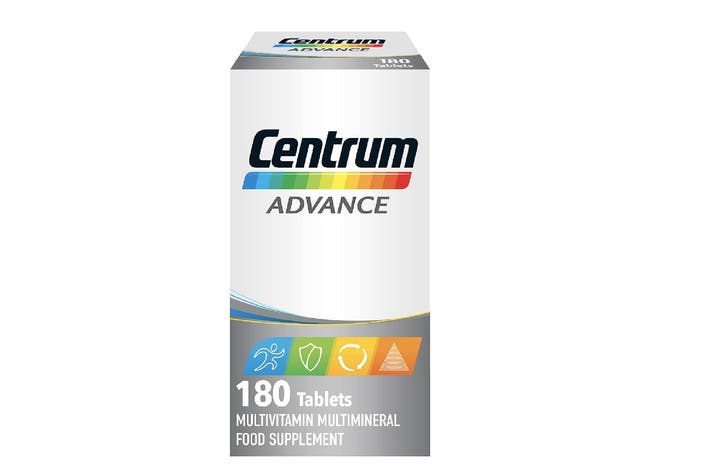
- Best Multivitamin for immunity and energy
- Size 180 capsules
- How to take it Take one tablet daily with a glass of water, preferably with food
- Why we love it
- Affordable
- Contains 24 vitamins and minerals
Multivitamins can be costly but Dr Arora advises that, “these do not need to be super expensive.” She says, “generally, I would recommend Centrum multivitamins, but even a health store or a pharmacy’s own brand will suffice.”
This pack of 180 capsules is a bargain at under £15 (some multivitamin brands are now charging up to £200 for a 30-day supply) and it contains 24 vitamins and minerals, including vitamins B12, C and D.
Dr Arora explains that, “it is important not to take extra minerals or vitamins on top, to ensure levels are not exceeded, as this can lead to side effects and health issues.”
A multivitamin is an all-rounder so will generally contain everything you need in measured doses that work alongside a healthy diet. If you double up on your dose by taking extra supplements this could require your body to work harder to process the excess, make you feel unwell or damage your liver and kidneys.
If you’re taking a multivitamin, always be mindful of how many other supplements you’re taking and if in doubt, speak to your doctor or a qualified nutritionist.
7Manifesto beauty vitamin gummies

- Best Gummies for hair, skin and nails
- Size 60 gummies
- How to take it Chew two gummies a day
- Why we love it
- Contains prebiotic fibre
- Low in sugar
These vegan-friendly gummies for hair, skin and nails contain astaxanthin, biotin, zinc, selenium and açai berry. They also contain the prebiotic fibre inulin, which Shand says, “feeds the gut microbiome for a healthier gut, which is essential for good skin health –because you can’t have one without the other.”
Shand also explains that, “these gummies are a great option if you dislike swallowing pills, and they genuinely taste amazing. The supplements contain a carefully curated ingredients list packed full of antioxidants and vitamins to support your outside beauty and help strengthen your immunity as an added bonus,” she adds.
They’re small, squishy and taste very fruity. They also contain very little sugar, which is not that common when it comes to gummy supplements. Each gummy contains approximately 0.8 g of sugar, which the brand states is less than the sugar in a single cherry. The sweetness comes mainly from the inulin and there are no added sugars like high-fructose corn syrup, which you’ll often find in other gummies.
8Glowwa hair food

- Best For hair, skin and nails
- Size 60 capsules
- How to take it Take two capsules every morning with food
- Why we love it
- Free from dairy, colourings, flavourings, gluten, silicon dioxide, preservatives and titanium dioxide.
- Award-winning formula
Essential fatty acids, biotin, iron and proteins are vital for healthy hair and its growth, while oily fish and leafy vegetables are particularly important. But, where it may be difficult to get all the needed nutrients from diet alone, there are supplements to help.
There are several reasons for thinning hair and hair loss, including stress, hormonal changes and nutrient deficiencies. “Hair follicles have a cycle of active growth, transition and rest. When there is a disruption to this cycle it can result in hair loss and thinning hair,” explains Dr Arora.
She emphasises that nutrition is an important area to focus on if you’re seeking to treat hair issues and that supplements can help as an addition to a healthy diet.
“Supplements such as Glowwa hair food contain active ingredients, including niacin, zinc, vitamin B12, biotin, MSM and vitamin C. These ingredients together can work to promote hair growth and prevent hair loss,” she says.
Read our tester’s full review of the Glowwa hair food supplements here.
9Skinade collagen

- Best Liquid formula for skin, hair and nails
- Size 30 x 150ml bottles
- How to take it Drink one serving before breakfast
- Why we love it
- Easy-to-drink formula
- Is a supplement and a booster
- Also contains vital nutrients
Though collagen can also be used to support joint health, this product contains the collagen type that’s been studied for its effects on skin health – type I. Skinade uses hydrolysed marine collagen peptides, primarily Type I collagen, and also includes Type III collagen — the key types naturally found in human skin.
Collagen comes in various powders and gels but this version is a liquid that’s easy to drink. The highly bioavailable liquid formula offers a 90 to 95 per cent absorption rate versus an average 30 to 40 per cent rate for collagen tablets.
Dr Arora points out that, “Skinade is popular among celebrities, but it makes the cut for me because not only does the collagen come in a hydrolysed format, meaning it’s easier for the body to absorb, it also triggers your body to produce collagen. It’s a supplement and a booster.”
The peach and mangosteen flavoured drink also includes vitamins B and C, omegas 3 and 6 and l-lysine so it packs a punch where bioavailable nutrients are concerned. Experts also suggest taking a drink rather than a supplement if you happen to have issues with absorption or you struggle with tablets.
10Bare Biology life and soul omega 3 capsules

- Best For joint pain
- Size 60 capsules
- How to take it Take two capsules a day with food
- Why we love it
- Most potent form available
- Sustainable
- Also contains algae
“Omega-3 oil may help reduce swollen and tender joints associated with arthritis,” says Bardwell. These capsules contain the equivalent nutritional value of a whole tin of sardines and include sustainably sourced algae too.
Fish oil can be a tricky supplement to choose. There are several types and some are more ethically produced and effective than others. Several brands have come under fire for selling supplements that contain rancid oil and others do not use sustainable practices.
“Bare Biology life and soul is the most potent form on the market, and I regularly recommend it to clients.” says Bardwell.
The essential fatty acids in Omega-3 also play a key role in brain function and heart health so this is a great supplement to think about taking as you enter midlife.
There is also a vegan alternative available from the brand. Vim and vigour is made from algae oil and is suitable for those who don’t eat fish, meat, dairy and eggs (from £27.16, barebiology.com).
11Wild nutrition food-grown magnesium

- Best For muscle health and sleep
- Size 60 capsules
- How to take it Take two before bed
- Why we love it
- From food-grown sources
- Added probiotics for better absorption
Magnesium is responsible for so many different functions in the body and can help with joint and muscle pain, along with sleep and mood.
“This is my number one magnesium supplement on the market because it’s food-grown, which means it’s more bioavailable and therefore the body recognises it more easily and can absorb the capsules and utilise them in your body,” says Shand.
This 30-day supply of magnesium is sourced from natural ingredients and is combined with a probiotic called Lactobacillus bulgaricus for improved digestion and absorption. Shand recommends taking two capsules at the end of the day before bed.
12NaturesPlus hema-plex capsules
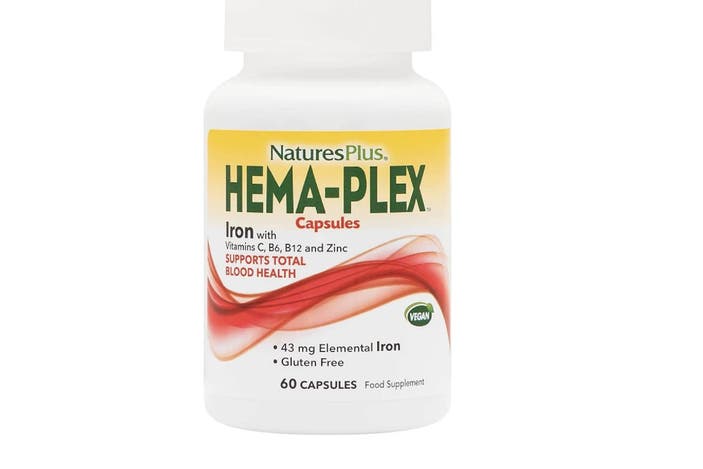
- Best For low iron
- Size 60 capsules
- How to take it Take two capsules with food
- Why we love it
- Vegan
- Gentle on the stomach
- Also includes B vitamins and vitamin C
Low iron is fairly common and can be caused by heavy periods, pregnancy, fibroids, autoimmune conditions and dietary choices. Bardwell explains that, “it can be very tricky for a number of reasons to significantly increase iron levels, so a multi-pronged approach is sometimes recommended.”
Iron supplements can sometimes cause an upset stomach, constipation due to slower gut motility and heartburn or reflux. Bardwell recommends Hema-plex to avoid these issues but also recommends adding fibre to your diet to help with any potential side effects.
“Hema-plex capsules are gentle on the stomach and contain all the co-factors needed for optimal iron absorption, including vitamin C, zinc and B vitamins such as folate and methylcobalamin.”
Be sure to get checked by a health professional to find out if you have an iron deficiency before deciding to supplement.
13BetterYou Vitamin D3 K2 Oral Spray

- Best Oral spray for immunity and energy
- Size 15ml
- How to take it Take one spray per day
- Why we love it
- Sublingual delivery is great for absorption
- Added K2
- Vegetarian
- Take note
- Not suitable for vegans
This oral spray offers superior absorption due to the handy spray bottle. It’s also combined with K2 which supports better direction and absorption of calcium.
Dr Arora explains that the majority of people in the UK are vitamin D deficient and that supplementing can improve overall health and immunity.
This peppermint-flavoured spray provides 3000 IU of Vitamin D and an optimal dose of Vitamin K2. The oral solution means bypassing stomach acid so it’s a great option for those with gut issues or people who dislike pills.
Your questions on the best supplements answered
Which supplements should I take?
As nutritionist Emma Bardwell explains, choosing a supplement is always easier with the help of a qualified expert. Doctors and nutritional experts can not only help with testing for deficiencies, they’re also able to recommend the best dosage, when to take your supplements and how to take them.
For example, some people with gut issues might not benefit from taking a capsule, due to issues with absorption. For those with GI concerns, a liquid supplement taken orally might be the best bet. Patches might also be a good option, for people with particular health concerns.
How to tell if a supplement brand is any good
The quality of the supplements you take also matters, which is why it’s often best to ask an expert which brands they personally recommend. Often, the cheapest option or the brand with the coolest marketing campaign might not offer the purest formula, and you want to be sure you’re getting the best for your body.
Always check the label and look up the ingredients and take stock of the nutritional value of each ingredient. You might also want to compare and contrast the recommended daily allowance of each supplement and assess how this fits in with your diet.
It’s also worth looking out for brands that have clinically tested their supplements, especially in third-party trials. This means the product has been reviewed independently by another organisation that isn’t on the brand’s payroll.
Looking out for capsules that offer delayed release and high bioavailability is also a good idea. This means the nutrients in what you’re taking will reach the bloodstream without being wiped out by stomach acid or broken down by the metabolic process.
It usually takes at least three to six months to see results from supplementation. You might notice results sooner but don’t expect rapid changes overnight. It’s often useful to keep a log or diary of your symptoms and how you’re feeling, so you can compare the state of your health before and after supplementation.
You can also read our expert-led guide to selecting supplements and how to spot red flags when shopping for supplements.
When should I take supplements?
You might also find you don’t need or want to take supplements year-round. During the winter months, when your diet, lifestyle and sleeping habits might change, you could notice your energy levels and mood taking a dip. People often seek out supplements in the latter half of the year, to help with these issues and to support immunity levels.
Some supplements are best taken with or after food and some can be taken on an empty stomach. Experts recommend taking your B vitamins in the mornings, as these can give you more energy and might keep you awake if you take them later in the day. The label will usually advise how and when to take each supplement but, if in doubt, it’s worth consulting a medical expert, so you can tailor your protocol to your routine and get the best results.
What supplements should I take for gut health?
Every person’s gut microbiome is different and for some, a probiotic, prebiotic or postbiotic can help to regulate the levels of healthy bacteria in the gut and lessen the likelihood of digestive issues. “Probiotic supplements or probiotic-rich foods like yogurt or kefir can help maintain a healthy digestive system, alongside fermented foods such as kimchi, sauerkraut, or kombucha, these support your gut microbiome and overall immune function.” explains Pura Collagen founder, Jennifer Mo.
However, it is possible to upset the delicate balance of your microbiome by overloading with gut supplements. It’s also advisable to check in with a nutritionist or gut specialist if you suffer with digestion issues like IBS and colitis or autoimmune issues before you take a gut health supplement.
Gut health supplements vary and each contain different strains of bacteria in different amounts. Some will be specially formulated to reach the gut alive and others will be available in powders and liquids. To know which is right for you, first track your symptoms and consider what kind of supplement you might need. Then speak with an expert to determine which type and in which formulation you should be taking daily to support a healthy gut.
A healthy digestive system supports metabolism, skin health and even mental health so it’s worth making sure you are getting the best support possible from the supplement you choose to take.
What supplements should I take for immune health?
Supporting your immune system is always a good idea, especially during cold and flu season. There are certain nutrients that are especially crucial for immune health including Vitamin D, zinc, Vitamin C, quercetin, selenium and B12. If your diet is lacking in any of these nutrients, supplementing them can help to provide effective protection from viruses, infections and inflammation. Be aware of the recommended daily dose and if you’re concerned about exceeding the upper limit, speak with your doctor or a nutritionist to ascertain the optimal dose for your needs.
What supplements should I take for hair, skin and nails?
Zinc, Vitamin C and selenium are also the key to healthy hair, skin and nails. But there are other nutrients like biotin, Vitamin E and collagen that support healthy nail growth and youthful skin. New studies reveal collagen peptides can help reduce wrinkle visibility and while myriad skincare products contain Vitamin E, ingesting it can affect the health and quality of skin all over the body too.
“Collagen is the main protein that gives structure to our skin, nails, bones and ligaments,” explains Doctor Shendy Engelina, Consultant Dermatologist at Dermatica. “The more collagen we have, the plumper, smoother and more youthful our skin looks. As we reach our mid to late twenties, not only is it harder for our bodies to produce as much collagen as when we were younger – we lose it faster, too.”
Which supplements should I take for anemia?
According to Effect Doctors, up to 10 per cent of all women in the UK are iron deficient, making it the most common cause of anemia in primary care. The causes range from menstrual blood loss and pregnancy to poor diet and conditions like IBS. A balanced diet can prevent the symptoms of anemia, but for those following a plant-based diet, the elderly and those with issues absorbing B12 and folate, the risk of iron deficiency is significantly higher.
Supplements that contain iron, Vitamin C, B12, and folic acid can all help to prevent anemia. Staying hydrated also increases hemoglobin so drinking plenty of water and using electrolytes can help.
Which supplements should I take for joint pain?
Joint pain tends to increase as we age and the levels of elasticity in our body decrease. Supplements like Omega-3 and collagen can help with lubricating and regenerating the tissues between joints, while anti-inflammatory nutrients can ease swelling and pain caused by arthritis and hormonal fluctuations during menopause.
“Reduced collagen can cause serious signs of ageing including joint pain, reduced bone density, muscle loss and osteoporosis,” explains Mo. “Scientific studies have proven that supplementing a diet with high quality collagen peptides can trigger the body’s natural collagen production and promote cartilage regrowth.”
When paired with flexibility and mobility exercises and healthy muscle mass, joint pain supplements have the potential to stave off pain and stiffness after injury and as our bodies naturally age.
Looking for more dietary supplements? We’ve rounded up the best protein powders and the best magnesium supplements
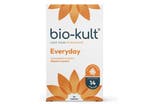
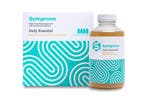
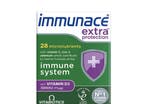
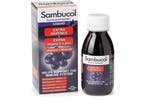
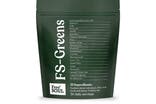
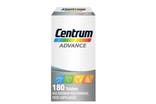





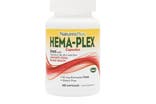


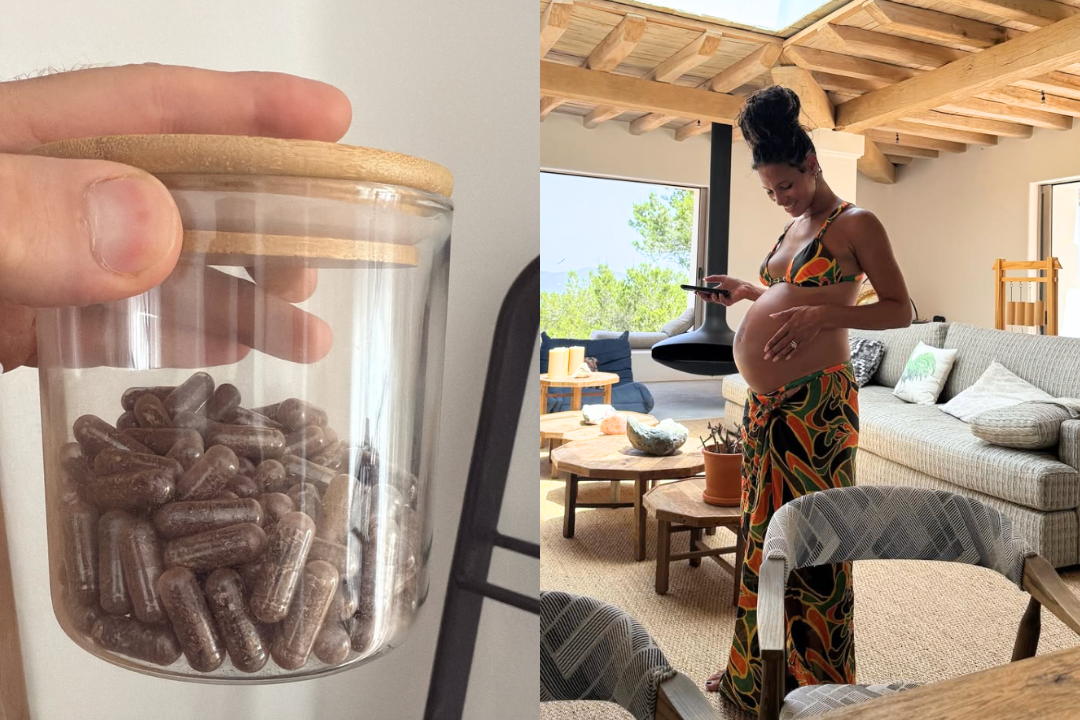


Bookmark popover
Removed from bookmarks